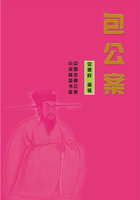While Joseph II. was reducing Febronianism to practice in the Austrian territories, the Prince-bishops of Mainz, Trier, and Cologne hastened to show their anxiety for the suppression of ultramontanism in the Rhinelands. The list of grievances against Rome presented to the Emperor in 1769 indicated clearly their attachment to Gallican principles, and this feeling was not likely to be weakened by the erection of an apostolic nunciature at Munich in 1785. This step was taken by the Pope at the request of Carl Theodore, Elector of Bavaria, a great part of whose territory was under the spiritual rule of the prince-bishops. The prince-bishops of the west, together with the Prince-bishop of Salzburg, all of whom were hostile already to the papal nuncio, were greatly incensed by what they considered this new derogation of their rights, and sent representatives to a congress convoked to meet at Ems (1786). The result of the congress was the celebrated document known as the /Punctuation of Ems/, in which they declared that most of the prerogatives claimed by the Pope were unknown in the early centuries, and were based entirely on the false decretals. They insisted that there should be no longer appeals to Rome, that papal ordinances should be binding in any diocese only after they had been accepted by the bishop of the diocese, that the oath of allegiance taken by all bishops before consecration should be changed, that no quinquennial faculties should be sought as bishops already had such faculties by virtue of their office, and that religious orders should not be exempt from the authority of the ordinaries, nor be placed under the jurisdiction of foreign superiors.
The /Punctuation of Ems/ reduced the primacy of the Pope to a mere primacy of honour, and had it been acted upon, it must have led inevitably to national schism.
The bishops forwarded a document to Joseph II., who, while approving of it, refused to interfere. The Elector of Bavaria opposed the action of the bishops as did also Pacca[1] (1756-1854), the papal nuncio at Cologne. The latter issued a circular to the clergy warning them that the dispensations granted by the prince-bishops without reference to Rome were worthless. This circular gave great annoyance to the prince-bishops, particularly as they found themselves deserted by most of those on whose support they had relied. Even the Protestant ruler Frederick II. of Prussia took the part of Rome against the archbishops. In face of the unfriendly attitude of the bishops and clergy nothing remained for the prince-bishops but to withdraw from an untenable position. The Archbishop of Cologne for reasons of his own made his submission, and asked for a renewal of his quinquennial faculties (1787). The Archbishop of Trier made a similar application, not indeed as Archbishop of Trier, but as Bishop of Augsburg. But their submission was meant only to gain time. They sought to have the matter brought before the Diet at Regensburg in 1788, but the action of the Elector of Bavaria produced an unfavourable verdict. Having failed in their design, they addressed a letter to the Pope asking him to put an end to the disedifying quarrel by withdrawing the papal nuncio from Cologne, and by sending a representative to the Diet to arrange the terms of peace. The reply of Pius VI., covering as it did the whole ground of the controversy, contained a masterly defence of the papal rights and prerogatives (1789). The Archbishop of Trier publicly withdrew his adhesion to the /Punctuation/, and advised his Gallican colleagues to do likewise, but they refused, and in the election agreement of 1790 and 1792 they sought to pledge the emperors to support their policy. At last the Archbishops of Cologne and Salzburg made their submission, but the Archbishop of Mainz clung obstinately to his views, until the storm of the French Revolution broke over his city and territory, and put an end to his rule as a temporal prince.
In Tuscany where Leopold, brother of Joseph II., reigned (1765-90), a determined attempt was made to introduce Febronian principles as understood and applied in Austrian territory. Leopold was supported strongly in this attempt by Scipio Ricci, who, though a Jansenist at heart, had been appointed to the Bishopric of Pistoia at the request of the Grand-Duke. The Bishop of Pistoia set himself deliberately to introduce Jansenism and Gallicanism amongst his clergy. For this purpose he established a seminary at Pistoia, and placed it in the hands of teachers upon whom he could rely for the carrying out of his designs. In 1786 the Grand-Duke called a meeting of the bishops of the province, and explained to them in detail his programme of ecclesiastical reforms. With the exception of the Bishop of Pistoia and two others they refused to co-operate with him and his designs.
This plan having failed recourse was had to other measures. A synod was summoned at Pistoia, which was presided over by Scipio Ricci, and guided in its deliberations by Tamburini the well-known Gallican professor of Pavia (1786). It was attended by over two hundred priests, some of whom belonged to the diocese, while others were total strangers. As might be expected the decrees of the synod were strongly Gallican and Jansenist. To ensure their introduction into the province of Tuscany a provincial synod of the bishops was called, but the bishops expressed their strong disapproval, and the people attacked the palace of the bishop. He was obliged to retire from his diocese, though at the same time he remained the active adviser of Leopold until the death of Joseph II. led to Leopold's election to the imperial throne (1790), and put an end to the disturbances in Tuscany.















